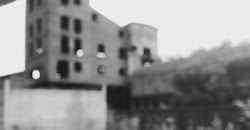The Mood in Molochansk and Zaporozhye
Coming in and out of Ukraine for nearly 9 years has given me the opportunity to try and sense the mood in Molochansk and Zaporozhye. The information that I gather in numerous conversations, often with the same people, gives me a better sense how people are feeling compared to the previous year.
When I arrived last August, the Malaysian airliner had just been downed. Donetsk Airport was a fierce battleground. People were very anxious about the war and their immediate future. Now, a year later here are some observations.
- The concerns about the fighting in Donestk and Ludhansk Oblasts are not as apparent now. People say they are learning to live with this reality. They do not seem to be paralyzed with fear. Often they say, "We need to get on with our daily lives." I see the shrug and hear the saying, Life goes on. However, Call-up for military service certainly is a fear for many young men.
- The biggest fear at present is the increase in the prices of necessities and no corresponding increase in wages and pensions. The cost of gas is a major concern. Schools and other institutions which moved to primary heating with electrical radiators felt that the changeover last fall was very successful. We financed some of the rewiring and radiator costs. After a dramatic devaluation in 2014, the Ukrainian currency, the grievna, appears to have stabilized at $1.00 U.S. to 23.00 UAH.
- The government is making a very determined effort to collect more revenue by requiring more people to pay taxes. As a registered charitable organization we are increasingly required to do more paperwork to document financial transactions.
- Corruption, particularly the payment of bribes, is often being exposed through social media. The call for transparency in dealings is frequently promoted by advocacy groups.
- Small villages are losing their institutions and their resident youth mostly due to job loses. Schools are being shut down with children required to go to larger neighbouring schools. Hospitals services are downsized to day only medical clinics. As one person said, " The only thing growing in our village is the cemetery." The plight of the smaller villages often means that cities are under stress with refugees from the war zone, (63,000 in Zaporozhye), and from displaced youth looking for work.
- The tremendous spirit of volunteerism coming out of the war has really flowered in this country. The Probation Officer caseload in Tokmak has dropped by 25% with over 100 young men volunteering in the military. The newly established Military Police Unit has lawyers volunteering to join, some going into Military Prosecutor positions. Women join together to make dried borscht packages for the soldiers; only hot water needs to be added. Students in local schools are very involved in sending notes of encouragement and support to soldiers. Volunteers work at the military rehab hospital in Lviv to help the wounded. This volunteerism is often accompanied by an increasing sense of nationalism.
- The major church denominations in Ukraine have set aside their differences and seem to be cooperating and working together. Differences over doctrinal issues hold less importance.
- The spring crops look good. Molochansk and Zaporozhye have some good rains and sunshine. Wheat, sunflower and corn crops look promising, as do the cherry and strawberry crops in Melitopol.
This provides a bit of an update and summary on what I have gathered and observed on my current visit to Ukraine. Now I am off to Livi in Western Ukraine.
Ben Stobbe




0 Comments:
Post a Comment
Subscribe to Post Comments [Atom]
<< Home